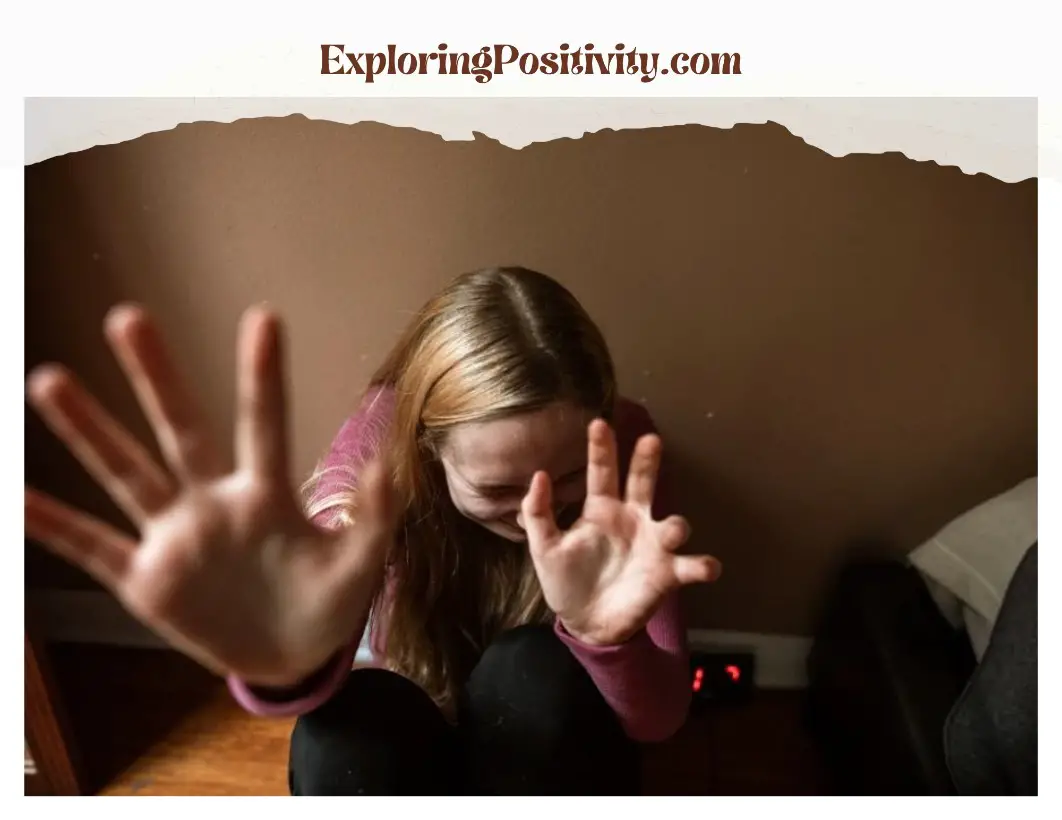Pre Verbal Trauma is a serious and often overlooked issue that affects many people. It is defined as a traumatic experience that occurs before the child develops the ability to speak. This means that the individual cannot express the trauma using language, making it difficult to heal.
The significance of pre-verbal trauma lies in its ability to impact a person’s mental health and well-being long into adulthood. In this article, we explore the hidden scars of pre-verbal trauma and discuss the importance of understanding this type of trauma.
Through my observations and experiences as a psychologist, I have seen first-hand the devastating effects of this issue and the urgent need to address it. Join me as we delve into the world of pre-verbal trauma and unveil its silent wounds.
Understanding Pre-Verbal Development
In the early stages of human development, communication is often non-verbal. This period is called the pre-verbal stage and it plays a crucial role in shaping the brain.
“Healing the wounds that words cannot express, strength emerges from within.”
Early experiences during this stage, especially those that are traumatic, can leave silent wounds that may persist throughout life. As a psychologist, I have seen how pre-verbal trauma can affect a person’s ability to form relationships, regulate emotions, and communicate effectively.
Understanding the importance of this stage in development is crucial, as it can help us identify potential risks and intervene early. By exploring pre-verbal development and its impact on the brain, we can begin to unveil the silent wounds that may be holding us back.
Recognizing Pre-Verbal Trauma
Pre-verbal trauma refers to events that occurred before a child developed the ability to speak. These experiences can often have long-lasting impacts, leading to mental and emotional issues in adulthood.
Identifying the signs and symptoms of pre-verbal trauma can be a challenge, as victims may not remember the event or be able to articulate their feelings about it.
Uncovering the complexities of pre-verbal trauma requires an understanding of how it differs from verbal trauma. While verbal trauma typically involves emotional or physical abuse that can be articulated, pre-verbal trauma is more subtle and can arise from neglect or a lack of emotional support during a child’s formative years.
As a psychologist, I have seen the profound effects of pre-verbal trauma in my clients, and it is crucial that we raise awareness about these silent wounds and how to address them.
Causes and Risk Factors
Genetic predisposition and family history
Many of us have heard the phrase “it runs in the family”. This is because genetic predisposition and family history can have a significant impact on our health. More specifically, pre-verbal trauma can have long-lasting effects on our mental and emotional well-being.
As a psychologist with years of experience, I’ve observed many clients who struggle with the silent wounds of pre-verbal trauma. This trauma can stem from experiences that took place before we were able to communicate verbally, and can be passed down through generations.
By understanding the role family history and genetics play in our lives, we can work towards healing and overcoming these painful experiences. It’s important to remember that seeking help is a sign of strength and courage.

Environmental factors and their impact on pre-verbal trauma
Pre-verbal trauma is a silent wound that can have a profound impact on a person’s life. As a psychologist, I’ve seen first-hand the effects that environmental factors can have on those who have experienced this type of trauma.
These factors can include things like a lack of stability in the home, exposure to violence or abuse, or even just a general sense of chaos. What’s so insidious about pre-verbal trauma is that it often occurs at a time when the child is too young to express what’s happening to them.
As a result, the trauma goes unnoticed and untreated, leaving lasting emotional scars that can be difficult to heal. It’s important for all of us to be aware of how environmental factors can impact young children, so that we can work to create safe and stable environments for them to grow and thrive in.
Neglect, abuse, and other adverse childhood experiences
As a psychologist, I have worked with many clients who have experienced neglect, abuse, and other adverse childhood experiences. These early experiences can have a significant impact on a person’s mental and emotional well-being.
“In the silence of early pain lies the potential for profound growth and resilience.”
In particular, pre-verbal trauma can leave silent wounds that are often difficult to identify and treat. It refers to experiences that occur before a child has developed language skills.
These experiences can include neglect, abuse, and other forms of mistreatment. The effects of pre verbal trauma can be long-lasting and can have serious consequences for an individual’s development. As a psychologist, I am committed to helping my clients identify and heal these silent wounds so that they can move forward with their lives in a healthy and positive way.
Impact of Pre-Verbal Trauma on Development
Pre-verbal trauma, also known as silent wounds, can have lasting effects on an individual’s emotional, psychological, cognitive, and social development.
My experience as a psychologist has shown me that these traumas are often overlooked and can occur from neglect, abuse, or any event that happens before we develop language skills.
The emotional consequences can vary from depression, anxiety, and difficulty regulating emotions. Cognitive and learning challenges may include difficulties with memory, attention, and problem-solving skills.
Social and interpersonal difficulties can lead to problems with trust, attachment, and forming relationships. It is essential to address these silent wounds in therapy to help individuals overcome their negative impact on their daily lives.
The Role of Attachment in Pre-Verbal Trauma
The role of attachment in pre-verbal trauma is extremely crucial. Attachment styles, whether secure or insecure, play an imperative role in shaping an individual’s personality.
Pre-verbal trauma survivors experience lasting effects due to the disruption of their attachment styles. These individuals go through a great deal of emotional turmoil as they grow up and often find it difficult to form healthy relationships as a result.
As a psychologist, I have seen the profound impact that pre-verbal trauma can have on individuals. It is essential to recognize and address these silent wounds in people, to help them heal and grow into emotionally healthy individuals.
Healing and Treatment Approaches
Pre Verbal Trauma can often be overlooked or misunderstood due to its silent nature. However, in order to heal from such invisible wounds, building a foundation of safety and trust is crucial.
Therapeutic interventions for pre-verbal trauma need to be tailored to the individual’s unique experiences and needs. Expressive therapies, such as music or art therapy, can play a vital role in healing as they provide a safe space for clients to express themselves without words.
As a psychologist with years of experience, I have seen firsthand the transformative power of these approaches. By unveiling and addressing pre-verbal trauma through these various methods, individuals can begin to move towards a more fulfilled and healthy life.
Supporting Pre-Verbal Trauma Survivors
Pre Verbal Trauma: Unveiling the Silent Wounds is a topic that requires great attention. Supporting pre-verbal trauma survivors is a crucial task and demands creating a trauma-informed environment. To nurture healthy relationships and connections, it is essential to understand the behavioral patterns and provide comfort and assurance.
Advocacy and support networks for survivors and their families play an indispensable role in helping pre-verbal trauma survivors. As a psychologist, I have observed and experienced how trauma can leave silent wounds, which may cause severe distress and discomfort to the person.
Therefore, it is vital to provide the right interventions and create an environment that supports the pre-verbal trauma survivor’s healing journey.

The Intersection of Pre-Verbal Trauma and Mental Health
Pre-verbal trauma is often linked to mental health disorders that can cause issues for people throughout their lifetime. This type of trauma can occur before a child has developed the ability to communicate with words, which makes it difficult to identify.
Addressing pre-verbal trauma in therapy or psychiatric treatment can help individuals understand how this trauma has affected them as adults. By recognizing and confronting the silent wounds of pre-verbal trauma, people can learn coping mechanisms and develop the tools needed to heal and thrive.
As a psychologist, I have personally witnessed the positive effects of addressing pre-verbal trauma in therapy and have seen how it can lead to breakthroughs in mental health treatment.
Breaking the Cycle: Preventing Pre-Verbal Trauma
Pre-verbal trauma, spanning from birth to the age of 36 months, leaves a lasting impression on a child’s development that can last a lifetime. To break this cycle, early intervention and prevention strategies should be employed.
Strengthening the parent-child relationships, with bonding activities and secure attachment techniques, can help mitigate the long-term effects of pre-verbal trauma.
“Your inner voice speaks volumes, even if it doesn’t have words yet.”
As a psychologist based on my extensive observations and experiences with clients, I firmly believe that nurturing the bond between parent and child is the first step towards promoting emotional well-being and resilience in infants and toddlers.
Pre-verbal trauma is a reality, but it can be prevented or at least mitigated with timely interventions and positive relationships.
Cultural Considerations in Pre-Verbal Trauma
Pre verbal trauma can have a profound impact on an individual’s mental health and wellbeing, yet cultural differences can play a significant role in how such trauma is perceived and addressed.
In recognizing these differences, it becomes essential to adopt culturally responsive approaches to healing and support.
As a psychologist, I have observed the way cultural beliefs, values, and practices shape the understanding and expression of pre verbal trauma.
Some clients may be more comfortable with spiritual or traditional healing practices, while others may prefer a more conventional approach. By honoring cultural diversity and respecting individuals’ unique experiences, we can provide a safe and compassionate space for healing and recovery.
The Long-Term Outlook for Pre-Verbal Trauma Survivors
Pre Verbal Trauma often leaves invisible scars that can only be unveiled through careful observation and listening. As a psychologist, I have witnessed the incredible resilience and post-traumatic growth of individuals who have experienced early life trauma.
However, long-term recovery is influenced by various factors such as the severity, frequency, and duration of the trauma, as well as the availability of supportive relationships and resources.
It is important to recognize that healing is not a linear process, and setbacks and triggers may occur along the way.
Nonetheless, with proper support and treatment, survivors of pre-verbal trauma can find hope and reclaim their sense of agency in moving towards a healthier future.

Ethical Considerations in Working with Pre-Verbal Trauma Survivors
Trauma is a difficult experience to navigate, but it can be especially challenging when working with pre-verbal trauma survivors. As a therapist, it is important to ensure that your clients feel safe and supported in the treatment process.
This means being mindful of ethical considerations, such as confidentiality and consent.
In trauma therapy, a therapist may hear sensitive and personal information, but it’s essential to respect their clients’ privacy by not disclosing this information to others without their approval. Additionally, obtaining consent from the client before any therapy or treatment is given is critical.
As a therapist, it’s essential to play a role in ensuring ethical treatment. Pre-verbal trauma can be difficult to navigate, but with careful attention to ethical considerations, you can create a safe space for your clients to heal and move forward.
The Importance of Self-Care for Caregivers and Professionals
The field of pre-verbal trauma can be overwhelming and taxing. Caregivers and professionals who work in this field are at risk of experiencing compassion fatigue and burnout.
As a psychologist, I have seen firsthand the toll that this work can take on the personal well-being of those in this profession.
“Embracing the unspoken chapters of our past leads to the unwritten success of our future.”
It is vital that those in this line of work prioritize their own self-care in order to provide the best care for their clients. Strategies for self-care can include taking regular breaks, seeking support from colleagues or a therapist, and practicing mindfulness techniques. By investing in their own well-being, caregivers and professionals are better equipped to meet the needs of their clients and prevent burnout.
Self-care should never be seen as an option or a luxury, but rather as a necessary component for effective and sustainable care in the field of pre-verbal trauma.

Research and Future Directions
Pre Verbal Trauma, a topic that has long been overlooked by psychologists, has gained significant attention in recent years.
Thanks to advancements in understanding pre-verbal trauma, clinicians and researchers are now able to identify the silent wounds that individuals may carry with them for years. While there is still much to learn about this topic, the promising research areas and potential breakthroughs that are emerging give hope.
There is now a growing body of evidence linking adverse childhood experiences to negative health outcomes in later life. The work in this area holds particular importance for public health.
A deeper understanding of pre-verbal trauma has the potential to change how individuals are treated in therapy, transform the way parents raise their children, and possibly even prevent trauma altogether. As we move into the future, research into pre-verbal trauma is certainly a field to watch.
Conclusion
In conclusion, pre verbal trauma is a silent wound that can have a profound impact on an individual’s life. As a psychologist, I have observed the devastating effects of this trauma on my clients.
It is essential to raise awareness about this issue and provide support and healing for those who have been affected. While pre verbal trauma may be difficult to detect and understand, it is crucial to acknowledge its existence and seek help when needed.
The urgent need for awareness, support, and healing cannot be overstated. It is time for us to come together as a society and recognize the silent wounds of pre verbal trauma and take action to help those who are suffering.
What is pre-verbal trauma?
Pre-verbal trauma refers to traumatic experiences that occur before an individual develops language skills to communicate and process the events.
How does pre-verbal trauma affect individuals?
Pre-verbal trauma can have profound and lasting effects on individuals’ emotional and psychological well-being, impacting their relationships and overall functioning.
How can pre-verbal trauma be identified?
Identifying pre-verbal trauma can be challenging, but signs may include excessive fear, anxiety, behavioral issues, difficulty with attachment, and developmental delays.



